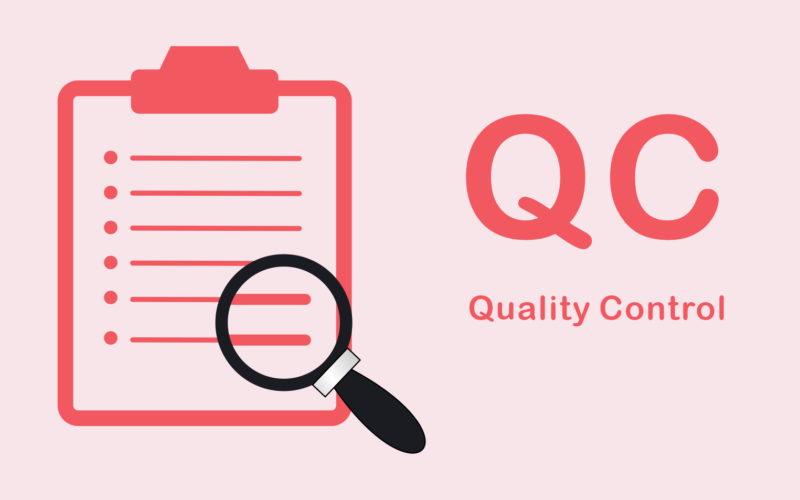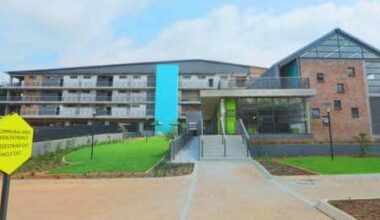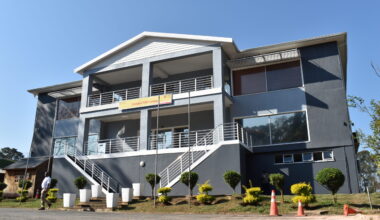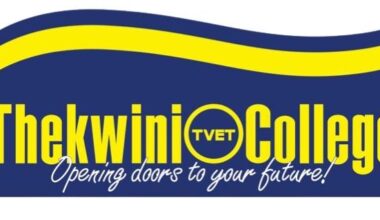If you’re looking into quality control courses in South Africa for 2025, you’re probably thinking about ensuring products meet the highest standards. Quality control is all about ensuring that what you’re producing is exactly what it’s supposed to be.
It’s not just about checking things now and then; it’s about setting up systems that catch mistakes early and make sure every product that leaves the factory is top-notch. Now, it’s not the same as general inspection or fixing things after they’ve gone wrong. Quality control is about designing and managing processes that prevent problems in the first place.
If you’re serious about this field, you’re looking at training that goes deep into techniques, tools, and strategies to help businesses maintain top quality. We will be providing you with a list of the best quality control courses in Africa, their costs, and requirements.
Table of contents
- Quality Control
- Quality Control Courses in South Africa
- 1. Six Sigma (Yellow Belt, Green Belt, Black Belt)
- 2. Internal Auditing
- 3. ISO 9001:2015 Lead Auditor/Implementer Course
- 4. Quality Management Systems (QMS) Auditor Training
- 5. Root Cause Analysis (RCA) Techniques
- 6. Statistical Process Control (SPC)
- 7. Total Quality Management (TQM)
- 8. Risk Management and Quality
- 9. Advanced Quality Planning
- 10. ISO 14001 Environmental Management Systems
- Quality Control Courses Unisa
- Quality Control Courses at NOSA
- Quality Control Short Courses
- Quality Control Courses Requirements in South Africa
- How to Become a Quality Controller in South Africa?
- FAQs
- Conclusion
- References
- Recommendations
Quality Control
Imagine you’re baking a cake. You’ve got all your ingredients, and you’re following the recipe to the letter. But, halfway through, you realize you forgot to add sugar—oops! Now, the cake won’t taste right, and that’s the problem.
Quality control is like checking each step of that baking process before you move to the next one. It’s making sure you have everything, that everything’s in place, and that the result is perfect.
You don’t just throw the ingredients together and hope it turns out okay. You carefully measure everything, check the temperature of the oven, and taste the batter to make sure it’s just right.
In industries, it’s about creating systems that catch mistakes before they happen, so you don’t end up with a “bad cake” at the end. It’s about getting things right from the start, making sure everything in a process works the way it should, from start to finish.
Read: Top 10 Paralegal Courses in South Africa | Cost and Requirements
Difference Between Quality Control and Quality Assurance
Quality control and quality assurance are like two sides of the same coin. Think of quality control as checking a product after it’s made, like testing a cake’s taste before serving it.
Quality assurance, on the other hand, is the process of making sure everything’s set up right from the beginning – like having the right ingredients and following the recipe carefully.
So, while quality control fixes mistakes, quality assurance prevents them from happening in the first place.
What is a QC course?
A QC course teaches you how to ensure products meet certain standards before they reach customers. Think of it as learning the skills to check if everything from food to electronics is top-notch and safe to use.
You’ll get familiar with testing, inspecting, and identifying issues that could affect quality. Whether you’re eyeing a job in manufacturing or healthcare, a QC course helps you understand how to keep things running smoothly and up to standard.
It’s about ensuring the final product lives up to its promises.
What degree is needed for quality control in South Africa?
In South Africa, you don’t need a super fancy degree for quality control, but having a diploma or degree in fields like engineering, manufacturing, or chemistry can really help.
A lot of people also start with certifications or specialized courses in quality control, which teach you all the ins and outs of making sure things are up to standard.
It’s a great way to break into the field if you’re looking to start without too much formal schooling.
Also, read: 10 Best Nated Courses in South Africa | Cost and Requirements
Quality Control Courses in South Africa
Here’s a list of the best quality control courses in South Africa:
- Six Sigma (Yellow Belt, Green Belt, Black Belt)
- Internal Auditing
- ISO 9001:2015 Lead Auditor/Implementer Course
- Quality Management Systems (QMS) Auditor Training
- Root Cause Analysis (RCA) Techniques
- Statistical Process Control (SPC)
- Total Quality Management (TQM)
- Risk Management and Quality
- Advanced Quality Planning
- ISO 14001 Environmental Management Systems
1. Six Sigma (Yellow Belt, Green Belt, Black Belt)
Six Sigma is one of the best quality control courses you can take, and it’s available in South Africa in different levels: Yellow Belt, Green Belt, and Black Belt. Think of it as a toolkit for solving problems and making processes smoother and more efficient.
At the Yellow Belt level, you’ll learn the basics—how to identify issues and start solving them. Green Belt digs deeper, teaching you more advanced methods for improving processes. Black Belt is for those who want to lead Six Sigma projects and drive major changes in an organization.
This course is perfect for anyone looking to boost their career in quality control, project management, or operations. This course is perfect for those who want to be experts at spotting inefficiencies and making businesses better!
You can go for this course at Optimi College in South Africa at R3,328.50. Alternatively, you can go for the course at the School of IT which costs R15900.the
2. Internal Auditing
Internal Auditing is a key part of quality control, and it’s all about making sure everything in a company is running as it should.
You’ll learn how to assess systems, processes, and controls to find weaknesses or risks before they become big problems. It’s a great course for anyone looking to build a career in compliance, risk management, or quality assurance.
Nelson Mandela University offers this course in three options:
- Option 3: Virtual (online) – which is considered one of the best online quality control courses in South Africa.
- Option 1: Onsite at the Nelson Mandela University Business School
- Option 2: Offsite at a facility provided by the requesting organization
The courses cost R10,250 per participant.
Also, The South African Institute of Internal Auditors (IIA SA) offers an excellent Internal Auditing course, which can cost between R8,000 to R15,000 depending on the specific program and level.
3. ISO 9001:2015 Lead Auditor/Implementer Course
The ISO 9001:2015 Lead Auditor/Implementer course is a fantastic option for anyone serious about quality control.
This course teaches you how to manage and assess quality management systems based on the ISO 9001 standard. You’ll learn to lead audits, evaluate processes, and help companies achieve certification.
It’s perfect for quality professionals, compliance officers, or anyone looking to improve company processes and efficiency.
You can go for this course at the ISO Certification in South Africa. The cost of the course is not listed yet. However, it does come with a free consultation from which you can get the details about the cost.
Also, you can book this course online from Sabs Online Booking at R15,975.
4. Quality Management Systems (QMS) Auditor Training
The Quality Management Systems (QMS) Auditor Training is one of the best courses for anyone looking to dive deep into the world of quality control. It covers everything you need to know about auditing a company’s quality management systems.
You’ll learn how to assess whether processes align with international standards, identify gaps, and ensure that a company is always improving its quality. It’s great for anyone working in compliance, or quality control, or even those looking to advance their career in the field.
The course is perfect for professionals wanting to understand the nuts and bolts of quality management. If you’re passionate about improving systems and ensuring a company’s success through quality standards, this is for you.
DQS Academy offers this course in South Africa. Even SGS offers this course, too. Now, none of these ISO 9001:2015 – Quality Management Systems Auditor/Lead Auditor Training Course price is available online. You will need to book a request to get the details on the fees.
Also, Alison offers the ISO 9001:2015 – Quality Management System (QMS) course as one of the best free quality control courses with a certificate.
5. Root Cause Analysis (RCA) Techniques
Root Cause Analysis (RCA) Techniques is one of those courses that can change the game when it comes to solving problems in any business. The course goes into how to find the real cause behind an issue, instead of just fixing the symptoms.
Whether it’s a machine failure, a process breakdown, or a quality issue, RCA helps you dig deep and uncover the root cause—this way, you can fix the problem once and for all.
The course involves learning various methods like the 5 Whys, Fishbone Diagram, and Failure Mode Effects Analysis (FMEA). These tools help you think critically and solve problems more effectively. It’s a perfect fit for anyone in quality control, engineering, operations, or anyone who deals with continuous improvement.
This is one of those courses where the more you learn, the more you realize how much of an impact it can have on your day-to-day work—fixing issues for good, saving time, and avoiding recurring problems.
The Knowledge Academy, Prospen, School of Consulting Engineers, and Six Sigma South Africa, offer this course. The course costs R5,000 to R7,000, which is quite reasonable considering the practical skills you’ll gain.
Also, read: 12 Best Life Coach Training Certification Courses
6. Statistical Process Control (SPC)
Statistical Process Control (SPC) is one of those courses that takes quality control to a whole new level. It’s all about using data to monitor and control processes, ensuring consistency and improving efficiency.
Essentially, SPC teaches you how to identify trends, spot variations, and fix problems before they become costly mistakes. The focus is on using statistical tools like control charts and process capability analysis to keep things running smoothly.
This course is perfect for anyone in manufacturing, engineering, or operations management who deals with production or quality processes. It’s especially helpful if you’re aiming to reduce waste, improve product quality, and optimize performance.
This course is offered at The Training in Quality Management Systems in South Africa or at The Knowledge Academy. At the TQMS, the public contact course costs R5130, and the distance learning course costs R5900.
This is an investment that pays off because mastering SPC makes you a pro at maintaining top-notch quality standards while boosting productivity.
7. Total Quality Management (TQM)
Total Quality Management (TQM) is a course that’s all about achieving excellence in every part of a business. It focuses on creating a culture where everyone – from top managers to employees on the groundworks together to improve processes, products, and services.
The goal is simple: consistent quality and happy customers. This course dives into principles like customer focus, continuous improvement, and teamwork while teaching practical tools to solve problems and improve efficiency.
TQM is perfect for business owners, managers, and quality professionals who want to boost customer satisfaction and streamline operations. It’s also great for anyone who dreams of building a sustainable business where quality isn’t just a department but a way of life.
With TQM training, you’ll not only learn how to improve quality but also inspire a culture of excellence across your team.
The University of South Africa offers this course at R2475 per module, and R4950 for the total cost of the programme. It is one of the popular quality control courses in UNISA.
8. Risk Management and Quality
Risk Management and Quality is a course designed to teach you how to identify, assess, and manage risks in a way that strengthens the quality of your organization. It’s like a guide to staying ahead of potential problems while maintaining the highest standards in your processes and products.
The course covers risk analysis, mitigation strategies, quality assurance, and compliance with industry standards. It’s not just about avoiding disasters—it’s about creating a framework where quality and risk management go hand in hand.
This course is ideal for managers, business owners, and professionals in industries like manufacturing, healthcare, and IT who need to handle risks while maintaining top-notch quality. It’s also great for quality control specialists aiming to expand their skills.
One great place to go for this course is at The Institute of Risk Management South Africa (IRMSA). Here’s a breakdown of how much the course costs:
Package 1:
- 2 x (1 Day Course) for Members: R7,050.00
- 2 x (1 Day Course) for Non-Members: R8,250.00
Package 2:
- 2 x (2 Day Course) for Members: R10,050.00
- 2 x (2 Day Course) for Non-Members: R11,050.00
Package 3:
- 4 x (1 Day Course) for Members: R10,950.00
- 4 x (1 Day Course) for Non-Members: R13,350.00
Package 4:
- 4 x (2 Day Course) for Members: R17,350.00
- 4 x (2 Day Course) for Non-Members: R20,350.00
9. Advanced Quality Planning
Advanced Quality Planning (AQP) is all about ensuring things are done right from the start. It focuses on planning and organizing processes to meet customer needs and deliver high-quality results. Think of it as a structured way to design and launch products or services while avoiding mistakes and costly delays.
This course goes into tools like Failure Mode and Effects Analysis (FMEA), process flowcharts, and control plans. It’s perfect for project managers, quality professionals, engineers, and anyone involved in product development or manufacturing.
The South African Quality Institute (SAQI) and The University of Johannesburg offer this course in South Africa. It costs around R7,500 for a 2-day workshop at SAQI and about R4550 at UJ.
10. ISO 14001 Environmental Management Systems
ISO 14001 Environmental Management Systems is a course designed to help you understand how to create and manage systems that minimize the environmental impact of your business.
It’s all about sustainability—reducing waste, managing resources better, and complying with environmental laws. You’ll learn how to plan, implement, and continuously improve environmental practices in your organization.
This course is ideal for business owners, managers, and professionals who care about environmental responsibility and want to stay ahead of global green standards.
SABS Online Bookings offers this course at R10,484 (excluding VAT). The course is five days long and requires 100% attendance. SafetyCloud is at R2,254 (including VAT) and is one day long. Also, DQS SA offers the course in person at R3,400 and online at R4600.
Read Also: List of NEMISA Free Courses | Fee Structure
Quality Control Courses Unisa
Here’s a list of the best quality control courses at UNISA:
- Quality Management and Techniques (MNO2602)
- Total Quality Management (MNO3703)
- Quality Management Systems and TQM
- Quality Management Systems IIIA (QLS3701)
- Quality Management IA (TQM1501)
- Engineering Quality Management II (EQM3701)
- Quality Management IB (TQM1602)
Quality Control Courses at NOSA
Here’s a list of quality control courses offered by NOSA:
Also, read: Best 15 FET College Courses in South Africa | Cost and Requirements
Quality Control Short Courses
Here’s a list of the best quality control short courses:
- ISO 9001 Foundation course
- Six Sigma and Quality Management Certification Courses
- Leadership in quality management
- Total Quality Management (TQM)
- Quality Assurance Quality Control QA/QC Training
- Quality Assurance and Control Training Course
Quality Control Courses Requirements in South Africa
Here’s all you need to know about the requirements for the quality control courses in South Africa:
- Grade 12 (Matric): Most quality control courses require a minimum of a Grade 12 certificate. Some courses may accept candidates with equivalent qualifications.
- Relevant Work Experience: For advanced courses like ISO 9001 or Total Quality Management (TQM), having a few years of experience in quality control or a related field may be required.
- Introductory Knowledge in Quality Management: Some courses, especially those that are more specialized or advanced, may require prior knowledge in basic quality management principles or prior completion of introductory courses.
- Industry-Specific Background: For courses like Engineering Quality Management, experience or education in engineering may be necessary.
- Technical Competency: A basic understanding of tools like Statistical Process Control (SPC), Six Sigma, and quality standards such as ISO 9001 is often a plus.
- Accreditation Requirements: Many courses are offered by accredited institutions such as NOSA (National Occupational Safety Association), SAIW (South African Institute of Welding), or the SABS (South African Bureau of Standards).
- Soft Skills: Critical thinking, problem-solving, and attention to detail are vital for quality control roles and might be tested during the course application process.
Read Also: List of Rosebank College Courses and Fee Structures
How to Become a Quality Controller in South Africa?
If you’re thinking about becoming a quality controller in South Africa, here’s a simple path you can follow:
- Start with a Matric Certificate: This is the basic requirement, so make sure you finish Grade 12. It’s the foundation for most quality control courses.
- Choose the Right Course: Look for quality control or quality management courses. You could start with a basic course or, if you’re aiming high, take a specialized course like ISO 9001.
- Get Hands-On Experience: You’ll need some practical work experience. This could be in a factory or any industry where quality control is crucial. The more you learn on the job, the better.
- Consider Industry-Specific Skills: Depending on where you want to work, understanding specific tools like SPC (Statistical Process Control) or Six Sigma could help.
- Build Your Attention to Detail: It’s all about spotting the small mistakes that can have big impacts. Quality controllers need a keen eye.
- Stay Updated with Standards: Quality standards evolve, so it’s important to stay up to date with things like ISO or TQM.
FAQs
Yes, UNISA offers quality control-related courses such as Quality Management Systems, Total Quality Management, and Engineering Quality Management.
No, a QC (Quality Controller) is not a lawyer. A QC ensures product or service quality.
Yes, quality control (QC) is a great job for detail-oriented individuals who enjoy ensuring standards and improving processes.
Conclusion
Quality control is important for ensuring everything meets the highest standards, much like a chef ensuring every dish is perfect.
If you’re looking to sharpen your skills and go deeper into the world of quality control, consider enrolling in quality control courses.
These courses will give you the knowledge and practical tools to maintain excellence in any field, even if you’re working in manufacturing, service, or any other industry.
References
- saqi.org.za – South Africa Quality Institute
- asq.org – Quality ASSURANCE & Quality control
- alison.com – Free Online Quality Control Courses
- shortcoursesportal.com – Short courses in Operations and Quality Management in South Africa






